Global Markets Rocked by Trump Election Upset
Investors were jolted by a result they hardly expected.
NEW YORK -- Markets like predictability, and Tuesday's results were anything but predictable.
Global markets, predicting a Hillary Clinton win for some time now, were caught flatfooted Tuesday night and are now in disarray.
The markets became jittery just before 9 p.m. Eastern time on Tuesday, as it became clearer that Florida might break for Donald Trump.
Over the next few hours as Trump's clinching the presidency become more probable, investors' screens began flashing red in a scene reminiscent of the massive sell-offs that followed the United Kingdom's shock vote on June 23 to leave the European Union — known as Brexit.
Investors around the world scrambled to recalibrate positions taken under the presumption of a Clinton victory.
"This is obviously not the outcome that markets had priced in at 4 p.m. today," Nick Colas, the chief market strategist at Convergex, told ABC News by phone from New York. "The way the markets were looking going in and the way polls and offshore odds were looking, there was going to be a 90 percent chance of a Hillary Clinton victory and a small chance of an upset."
"Now, looking at it just a few hours later, that was all wrong — 100 percent wrong," he added.
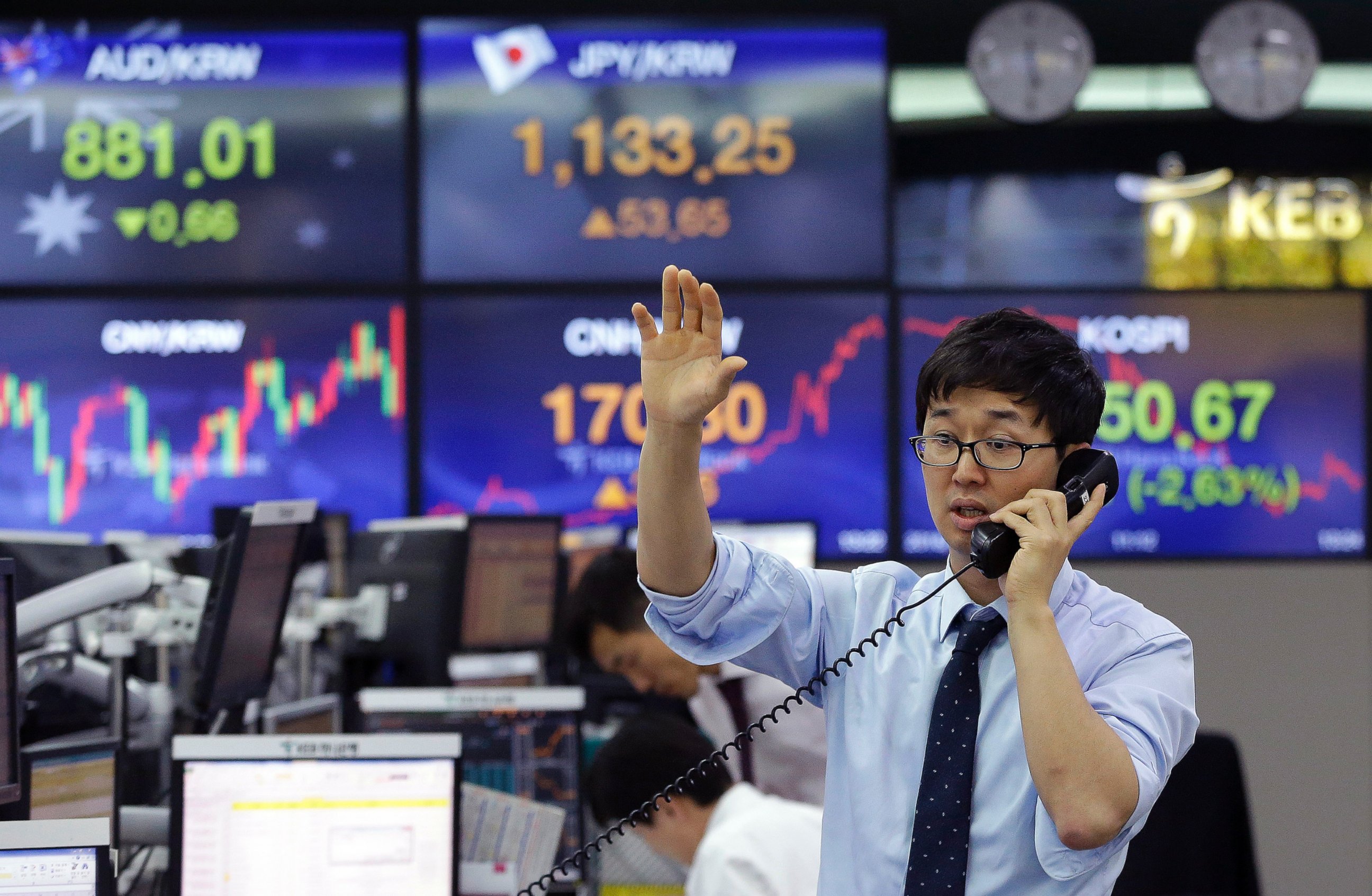
Stock Futures Sell-Off
At one point the Dow futures were down about 800 points. That massive sell-off — had it held until U.S. markets opened later today — would have been worse than even the darkest days of 2008, amid the financial crisis. The index's worst day in history, on Sept. 29, 2008, saw it slice off about 778 points in just one day.
At time of this writing, markets remained tumultuous. At around 7:00 a.m. Wednesday, Dow futures were down about 373 points, or just over 2 percent.
Futures on the S&P 500, another index, were down about 48 points, or about 2.2 percent.
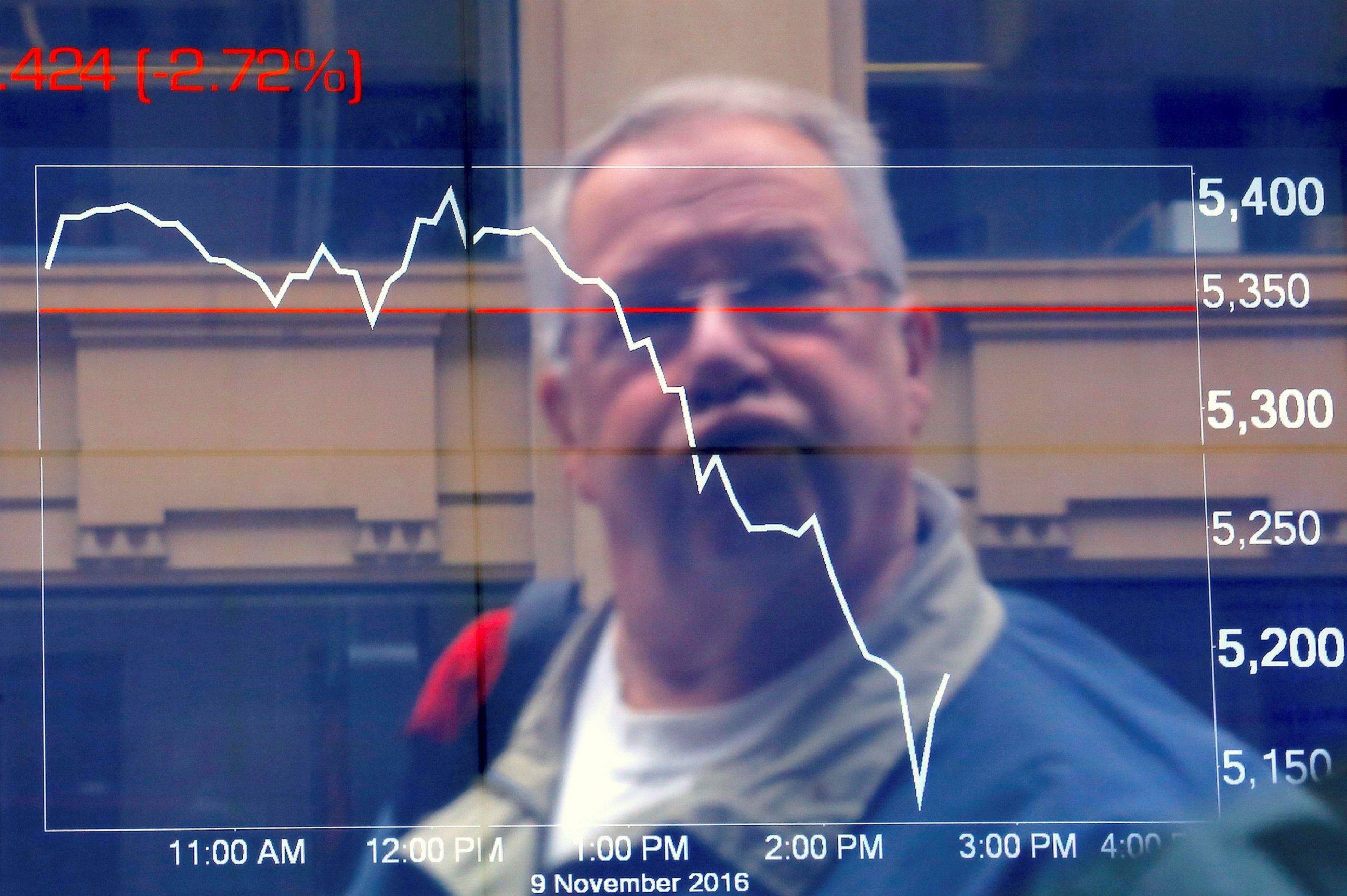
Peso Takes a Pounding
But the real plunge was seen in an asset that has become somewhat of a celebrity during this election cycle: the Mexican peso.
The exchange rate between the peso and the U.S. dollar became a bellwether during this election because of Trump's policy proposals regarding trade and immigration. From 8 p.m. to midnight, the peso lost more than 13 percent of its value.
Looked at another way, the peso saw its "biggest fall" since 1994 and hit "its lowest-ever levels," according to Reuters.
Its value plummeted past 20 pesos to the dollar and was hovering there just before 3 a.m. on Wednesday, though it recovered slightly from its lowest point of the evening.
As of Wednesday at about 7:00 a.m., the peso was trading down about 8 percent.
The Mexican central bank and Finance Ministry announced a joint press conference for Wednesday morning, presumably to address the market effects of the U.S. election.
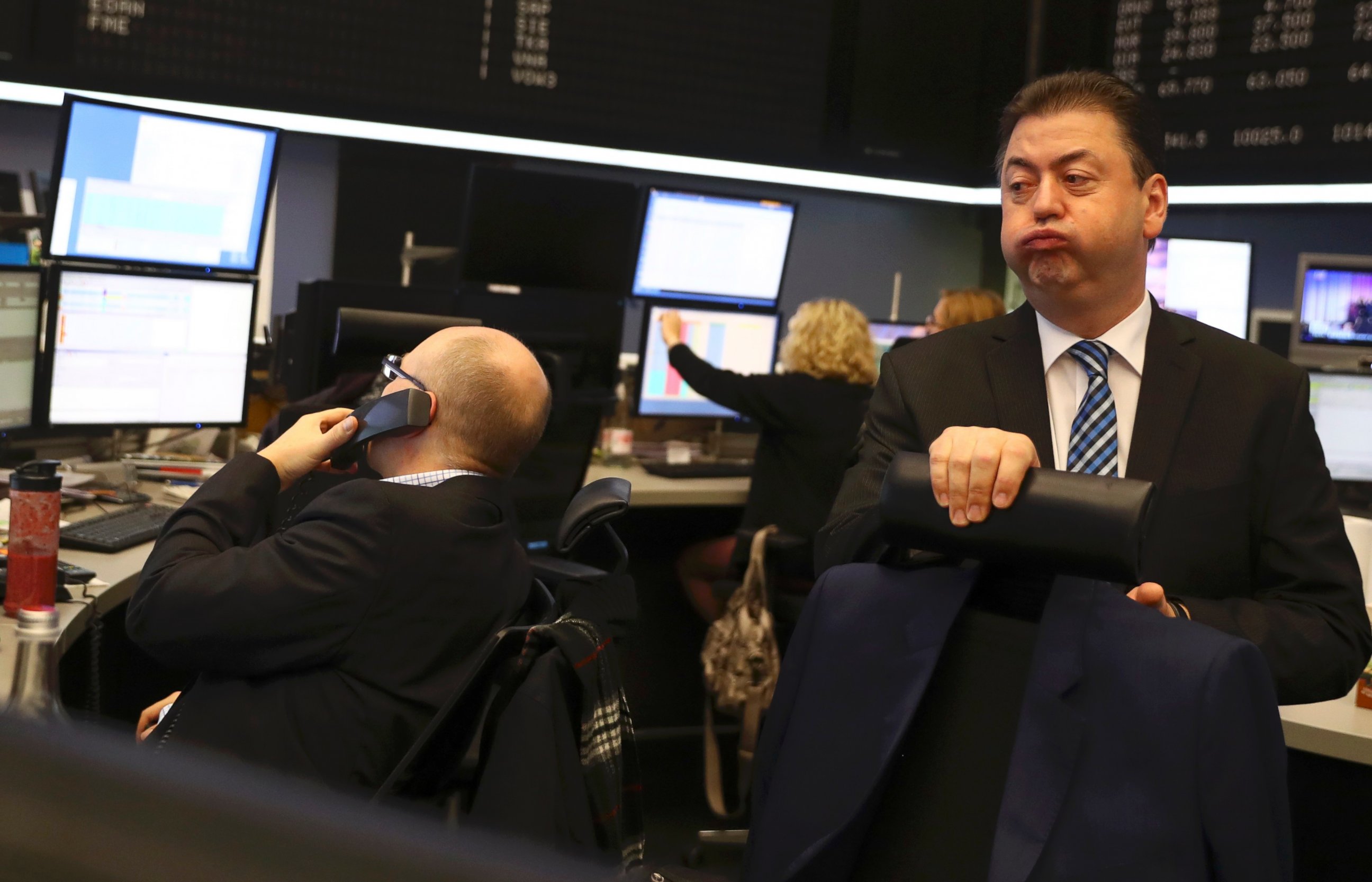
Investors Flock to Gold
Meanwhile, gold, the go-to safe haven for investors during tumultuous times, shot up. From 8 p.m. to midnight, the precious metal gained more than 4.75 percent.
It was gold's largest single-day jump since the Brexit vote in June, according to Bloomberg.
"In some ways it's bigger than Brexit," Colas said of tonight's outcome. "It's not just a question of a treaty or a relationship between governments. It's the nature of government."
Like the peso, gold backed off of its most extreme position of the evening, but at the time of this article's writing, gold futures were still up by more than 2 percent.
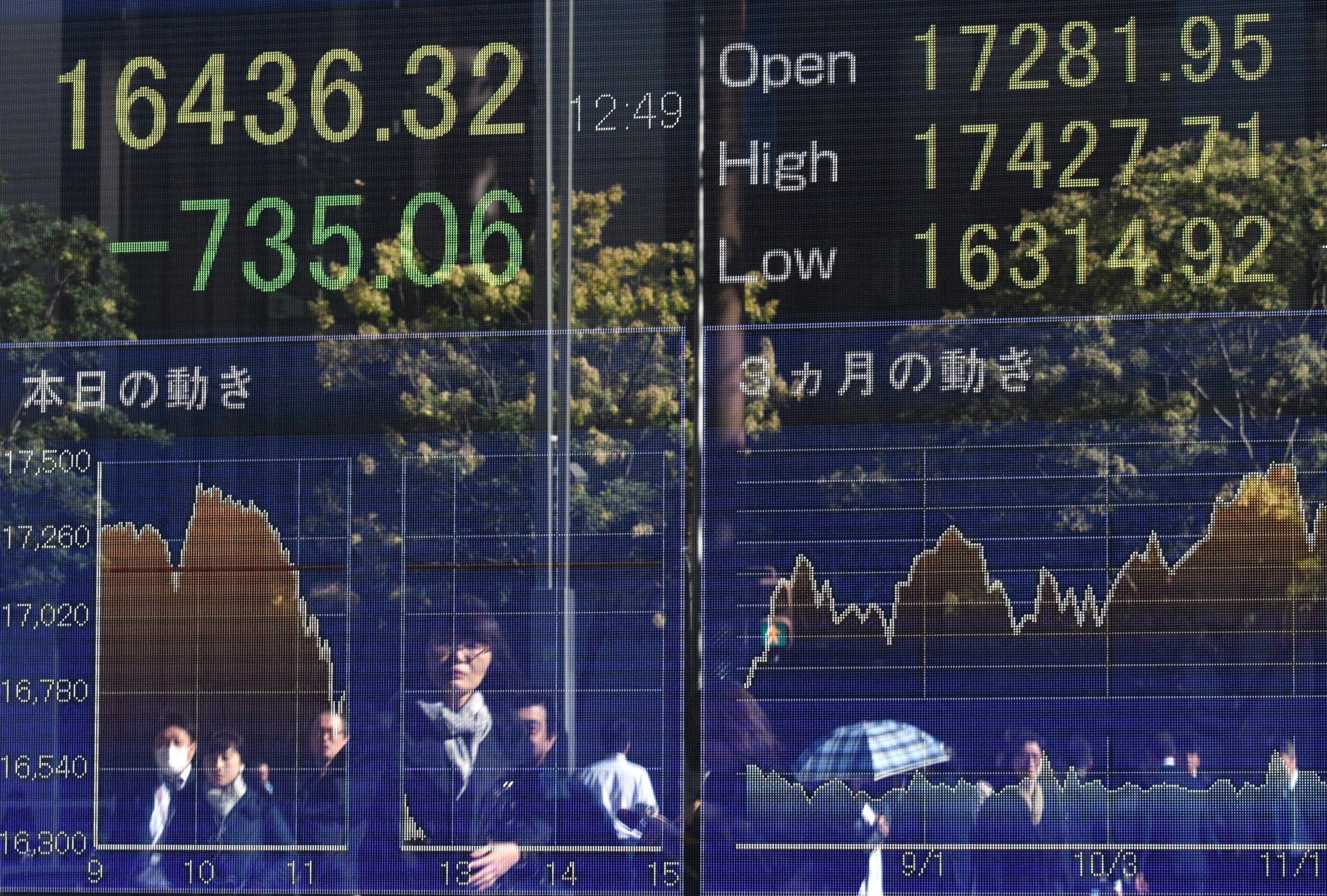
Global Reverberations
And the effects were being felt not just in the U.S.
Around the world, investors were scrambling in reaction to the shock upset.
Japan's main index, the Nikkei, turned negative just before 9 p.m. Eastern time (about 11 a.m. in Tokyo) and closed down more than 5 percent.
Hong Kong's Hang Seng index was negative at close, shedding about 2 percent of its value — having also turned negative just before 9 p.m. Eastern time.
Things didn't look much better in Europe.
France's CAC 40, a major European index, opened down and was trading down about 2.6 percent at 3:20 a.m. Eastern time, shortly after it opened. The U.K.'s FTSE 100 was down as well — more than 1.6 percent. Spain's IBEX 35 was down over 3.4 percent around the same time.
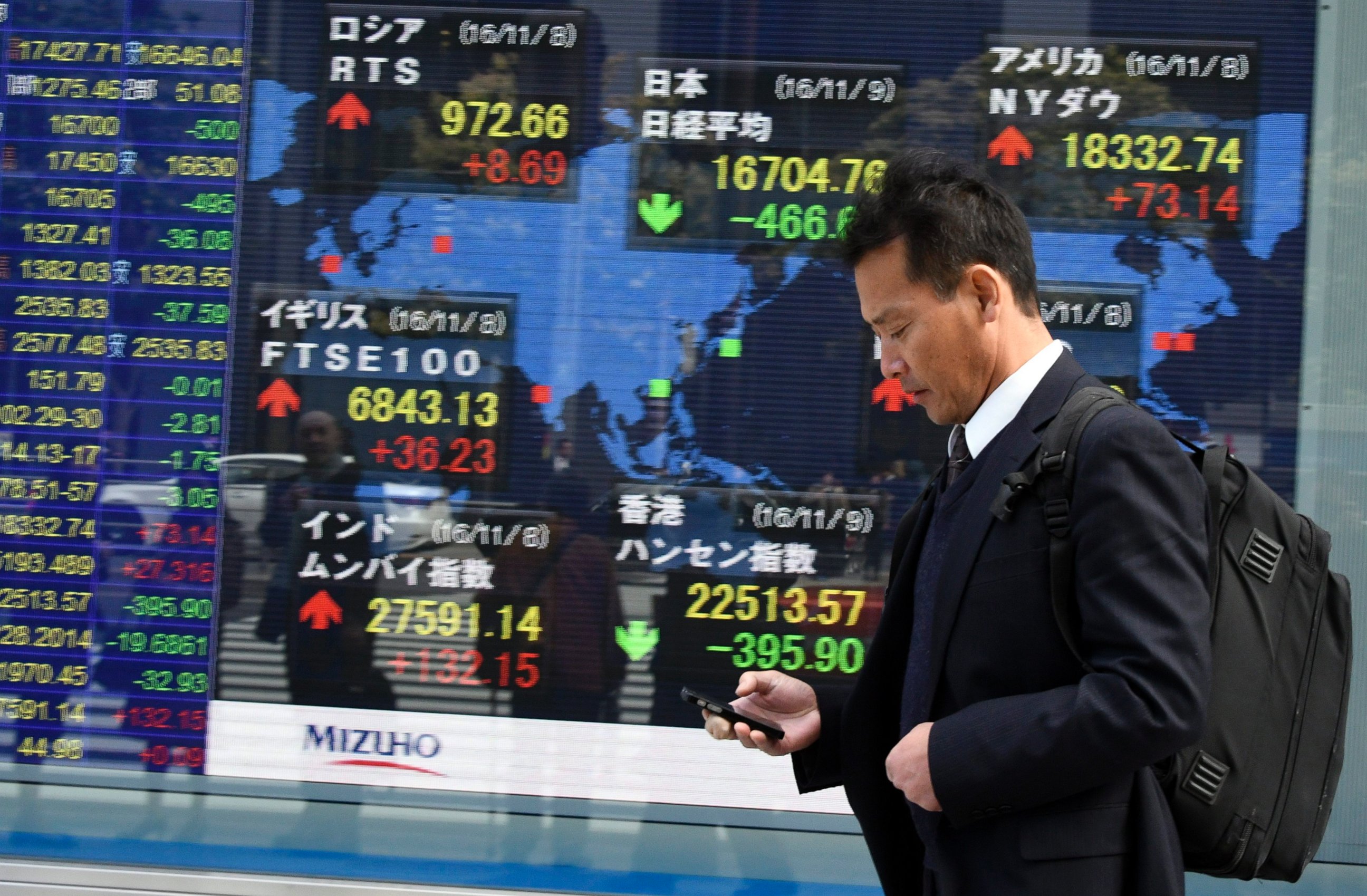
On a conference call hosted in Singapore that ABC News invited to join, Nomura's Southeast Asia equity strategist Mixo Das cautioned investors against snapping up cheap stocks "on the dip."
He warned that too much was uncertain, saying that investors needed clarity on what Trump's policies will be.
"There's still a lot of uncertainty about what Donald Trump will do, because he hasn't been talking about what he'll do," he said.
Looking Ahead
Flashing red graphics on the televisions and monitors of market watchers are likely to remain over the coming days, analysts said.
"Financial markets will remain very unsettled until there is some clarity about the direction a Trump presidency is taking," Mark Zandi, the chief economist at Moody's Analytics, told ABC News by email in the wee hours Wednesday. "The uncertainty around economic policy will be a corrosive on the economy until they actually take shape, and then the impact on the economy will depend on the policies themselves."
Paul Christopher, the head global market strategist at the Wells Fargo Investment Institute, had a slightly more optimist outlook when he spoke to ABC News by phone shortly after Trump's victory became clear.
While Christopher said there's likely "no let-up tomorrow and probably the next several days" in terms of the sell-off, he doubted that it would be "very long lived, especially the more severe this is at the outset."
"People will take a step back and see that this is going to be a long game," he said. "They're going to realize that a lot of the selling on the night of the 8th and 9th was a lot about traders reversing positions from assuming a Clinton win."
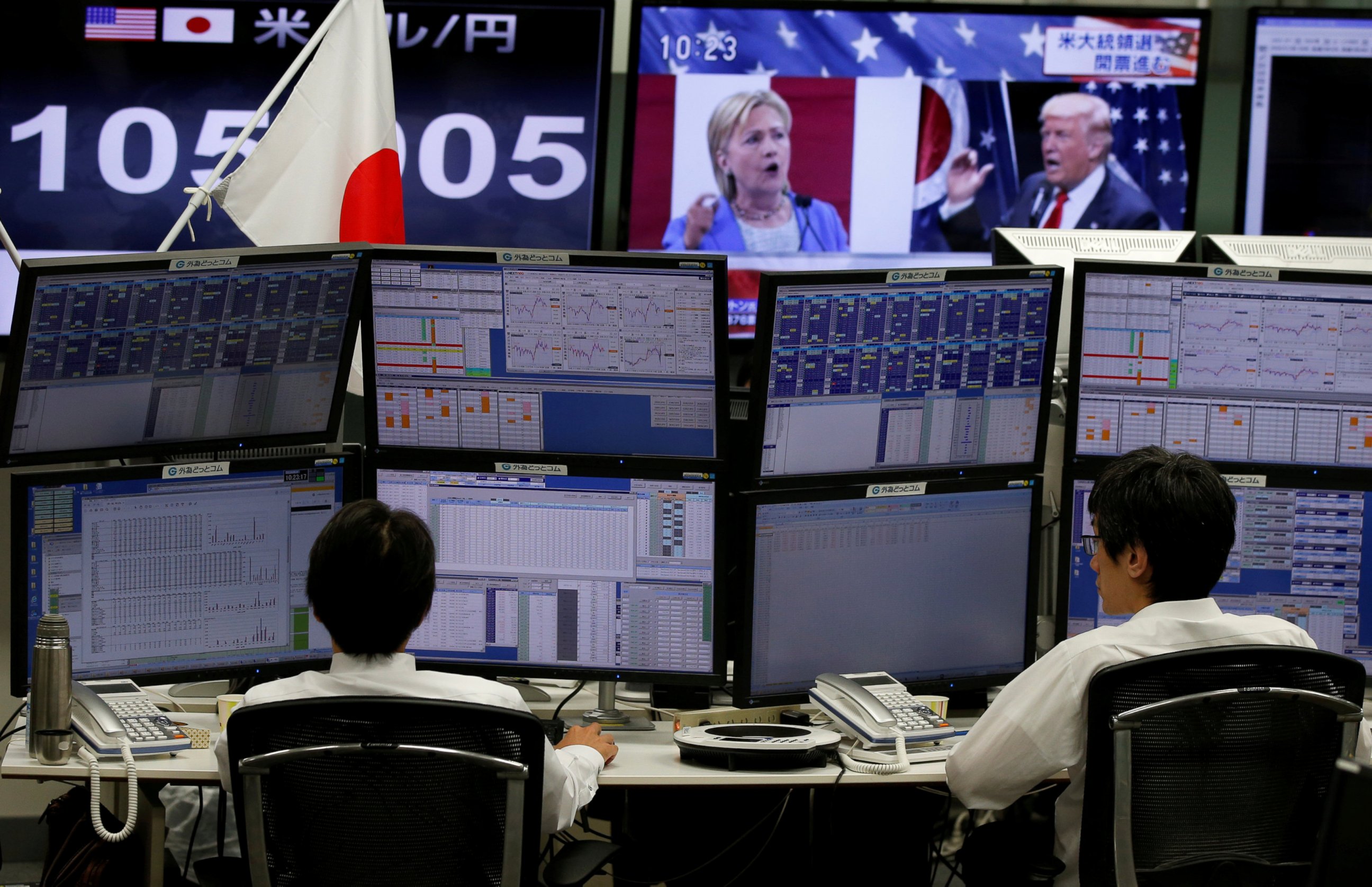
One thing that became less likely tonight, some analysts said, was a Federal Reserve interest rate hike in December.
Zandi said the result "will ensure that there will be no Fed rate hike this year."
Christopher was a little more cautious, saying "it looks like — according to the market-driven probabilities — that those odds [of a rate hike] have eased back from about 75 percent to about 50 percent." He cautioned that this could be an overreaction as well.
In Singapore, Das said that it brought the possibility of a rate hike in December into question and that uncertainties over the Fed's leadership could have a negative effect on markets.




